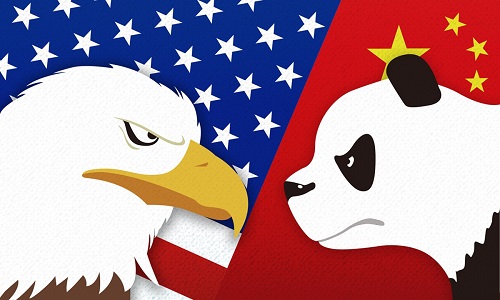Major Power Relations
Your Present Location: PROGRAMS> Major Power RelationsZhao Minghao: Trump policy toward China skewed by academic fanatic
By Zhao Minghao Source: Global Times Published: 2020-07-27
As a Chinese researcher of the US, I have been searching for the best way to understand the country. I spent some time studying at Purdue University in Indiana, which is a very "American" place. While there, I not only discussed international relations problems with US professors, but also attended local church activities where I listened to ordinary Americans praying and singing songs in praise of God. I still miss that place and those kind and friendly Americans.
When I did policy research on US-China relations, I often went to US conferences and worked with partisan think tanks. In particular, I wanted to know the views of those hawkish experts in the US. Although there are often heated arguments and even quarrels, I know that the important goal of communication is to help you adjust some of your assumptions and get a more complete and balanced picture of how Americans view China.

Illustration: Liu Rui/GT
Today, however, moderate and nuanced views of China-US relations are less and less valued in the US. In a recent speech at the Richard Nixon Presidential Library and Museum in California, the US Secretary of State Mike Pompeo portrayed the Communist Party of China (CPC) as a tyranny and called on the so-called free world to defeat it. This is perceived as the "new cold war" declaration.
Yu Maochun, known as Miles Yu in the US, has reportedly played an important role in Washington's new cold war against China. Born in Southwest China's Chongqing Municipality in 1962, he experienced the Cultural Revolution(1966-76). In 1979, he enrolled in Nankai University in Tianjin. In 1983, he went to study in the US and later obtained his PhD from the University of California, Berkeley. Before joining the US State Department's Office of Policy Planning, he taught at the US Naval Academy.
Now a US citizen, Yu has every reason to serve the US interests. Favored by Pompeo, Yu has been in the spotlight recently for pushing the Trump administration to confront China's ruling party. US Assistant Secretary of State for the Bureau of East Asian and Pacific Affair David R. Stilwell even called Yu as a "national treasure" of the US. But relying too much on Yu for China policy may hurt US interests.
On one hand, Yu's negative and even hostile attitude toward the CPC is too extreme - he hopes to see the downfall of the CPC. As a policy advisor, he has preconceived notions that will cause the US to make a wrong estimate over the relationship between the CPC and the Chinese people.
The US policy that aims at "regime change" in China won't resonate among the vast majority of Chinese society. They do not want China to repeat the tragedies of Iraq, Afghanistan, Libya and Syria.
On the other hand, over the past 30 years, Yu has rarely returned to China, and has done few field investigations. Although he has a Chinese face, his knowledge of China is not fundamentally different from that of many US scholars who rely on secondary sources. Yu taught at the US Naval Academy for a long time. It is normal for a military academic to study China as an adversary.
However, it would be disastrous for the US State Department and diplomats to take China and its ruling party as enemies. Just as Richard Hass, chairman of the Council on Foreign Relations, criticized, Pompeo's remarks "meant to antagonize and make diplomacy impossible." The forced closure of Chinese consulate in Houston has further blown the diplomatic channels between China and the US.
Perhaps Pompeo and Yu originally hoped that the channels for China-US exchanges would be completely closed, making it easier for US hawks to push for a new cold war. In three months before the elections, the Trump team might wish to win base support by intensifying confrontation with China. Even if Trump fails to be reelected, the Biden administration will only have a mess to clean up.
In current Washington, it requires courage to say even a good word about China-US relations. It is believed that there is a new McCarthyism in the US and that the room for open, in-depth debate on China is shrinking in the country.
In fact, since 2001, another Chinese American, Gordon Chang, has been hyping an imminent collapse of China and the CPC. However, this never came true. The US policy toward China is increasingly paranoid and has had counterproductive effects.
Pompeo's remarks instigated greater hostility toward the US in China, adding resistance to a new round of China's reform and opening-up. The huge costs of this new cold war are also being imposed on American society. It is misleading and not in the US' own interests to allow people like Yu to dominate the formulation of US' China policy.
Zhao Minghao is a visiting fellow at the Chongyang Institute for Financial Studies at Renmin University of China.























































































 京公网安备 11010802037854号
京公网安备 11010802037854号





